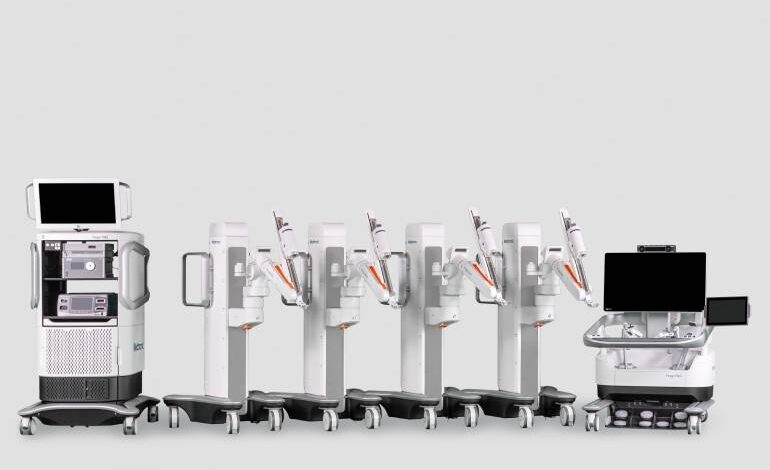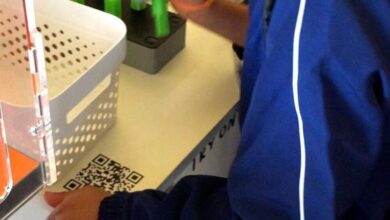Medtronic initiates new clinical studies to expand Hugo indications

Medtronic
(NYSE: MDT)
is initiating additional clinical studies of its Hugo robotic-assisted surgery system to expand its indications to hernia and gynecology.
The company said the studies are underway to support a planned submission to the FDA for the Hugo RAS system. Medtronic is now pursuing three indications for Hugo as it builds on momentum outside the U.S., with install bases growing across 25 countries and over 100 independent scientific publications globally.
“[It’s] critical that we are now operating across multiple indications, so that as we come into the market, we can have a series of launches across each of those to capture larger and larger pieces of the market. And we’re seeing good execution, early execution inside of each of those studies as well,” Mike Marinaro, EVP of Medtronic’s Medical Surgical portfolio, said during the company’s Q4 earnings call today. (Overall, Medtronic officials spoke of durable revenue growth and accelerated earnings growth.)
The Enable Hernia Repair U.S. clinical trial began with a robotic-assisted bilateral inguinal hernia repair procedure at Duke University Hospital in Durham, N.C., performed by Dr. Jacob Greenberg, the trial’s national principal investigator.
The clinical trial is a prospective, multicenter study evaluating the safety and performance of Hugo RAS in support of an FDA submission. Medtronic’s Expand URO clinical trial for urologic procedures is nearly completed.
“Our team is committed to exploring new technologies to advance care for patients,” Greenberg said in a news release. “This clinical trial aims to evaluate a new robotic-assisted surgery system in offering a precise and minimally invasive option for this painful condition, which affects millions of Americans every year.”
Medtronic also initiated a prospective clinical study for gynecologic procedures to support a planned submission to the FDA.
“Medtronic is committed to providing safe and effective healthcare technology that helps clinicians advance patient care,” said Eric Vang, VP of clinical research and medical science in the Surgical business in the Medical Surgical portfolio at Medtronic. ” Hugo builds on that commitment as we combine the power and potential of people and technology to drive healthcare forward for all.”
The Hugo RAS system is not cleared or approved in all markets. In the U.S., the Hugo RAS system is an investigational device and not for sale.
Hugo looks to join one of the largest medtech markets
According to Medtronic, robotic-assisted procedures could give patients fewer complications, shorter hospital stays and faster returns to normal activities.
Through collaboration with surgeons and hospitals, Medtronic designed Hugo RAS to expand access to minimally invasive care to more patients worldwide.
Hugo is a modular, multi-quadrant platform designed for various surgical procedures with wristed instruments, 3D visualization and surgical video capture options in Touch Surgery Enterprise.
The company first unveiled Hugo in September 2019, and investors were eager to see it. At the time, SVB Leerink analysts said Medtronic’s entry into the soft tissue robot-assisted surgery space represented a significant growth opportunity for Medtronic — as well as Intuitive Surgical, which presently dominates soft-tissue robotic surgery — because it represented an expanding market.
Several medtech companies have also entered the surgical robotics market in recent years, looking to compete with Intuitive. Intuitive has held the top surgical robot position for more than two decades and shows no signs of slowing down—it even won FDA clearance for its next-generation da Vinci 5 mulitport surgical robotics system in March.
In the orthopedics space, Stryker has its Mako surgical robot for hip and knee replacements, and it plans to expand into shoulder and spine applications. Zimmer Biomet launched its own orthopedic surgical robot, ROSA, for total knee replacement.
Surgical robotics for soft tissue applications and endoscopic procedures are also rising. In 2019, Johnson & Johnson MedTech acquired Auris Health and its surgical robot for bronchoscopic diagnostic and therapeutic procedures. Cases for CMR Surgical’s Versius robotic system span over 130 complex and benign procedure types as the British company expands outside the United States. Versius performs colectomies, hernia repairs, hysterectomies, sacrocolpopexies, and lobectomies across seven surgical specialties.
Many other medtech companies, such as Moon Surgical, SS Innovations, Noah Medical, Corin Group, and others, are developing surgical robots. MassDevice is keeping up with news in the space in our Surgical Robotics Hub here.



